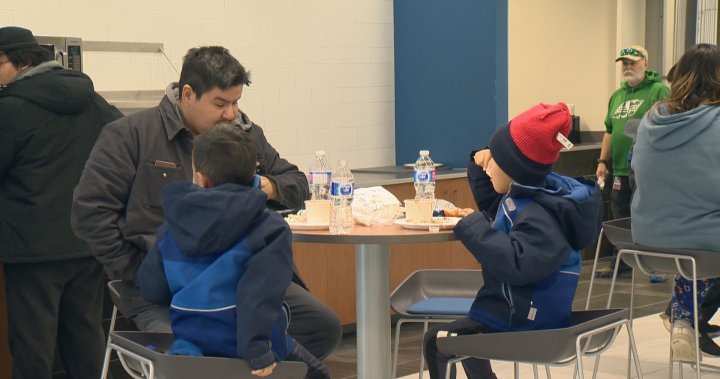One of the unions representing Manitoba’s health-care support workers says its members will likely go on strike Tuesday at 6 a.m.
Kyle Ross, president of the Manitoba General Employees Union, says he was at the bargaining table along with CUPE today, and the the unions are far from an agreement with the health authorities.
The key issue is money. The union says some health-care support workers — which include health-care aides, housekeeping aides, maintenance workers, and home-care workers — are paid as little as $17.07 an hour, which is less than any other support workers in Canada.
Ross says workers feel disrespected after years of health care cuts under the the former PC provincial government and a lack of change under the current government.

Get breaking National news
For news impacting Canada and around the world, sign up for breaking news alerts delivered directly to you when they happen.
“They’re not feeling appreciated for what they do,” Ross says. “They’re working double shifts. They’re working all this overtime because there’s no one to do the work, because no one will take up the job at $17.07. So, we have to find ways to recruit workers, and that means being competitive in the market.”
Both parties still hope to avert the strike, but agreements are in place to keep essential services running if that happens. Shared Health says patients in greatest need will be prioritized, with live-saving and high-priority surgeries continuing as normal. Cancer treatments will go ahead on schedule, and Shared Health hopes to maintain diagnostic testing at near-normal levels.
An estimated 250 elective surgeries per week could be postponed, and the hours may change at outpatient clinics.
Dr. Jose Francois, chief medical officer at Shared Health, says people will move through hospitals more slowly and some people may have to wait longer in emergency rooms or urgent care to be admitted while others wait to be discharged.
“This will result in longer waits within our hospital-based emergency departments,” Francois says. “Patients who are able to be treated and assessed elsewhere are asked to consider alternate locations. If you have minor concerns, please check with your family doctor or nurse practitioner, an extended hours clinic, a walk-in, or a walk-in connected care.”
Home-care aides will still visit priority 1 and some priority 2 clients. They will prioritize tasks such as medication and wound care, but may postpone services bathing, laundry or housekeeping.
© 2024 Global News, a division of Corus Entertainment Inc.




